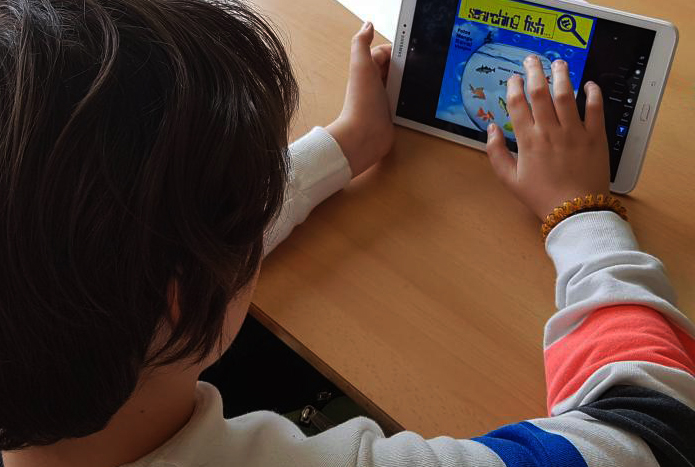
RAVALSTEAM is an education innovation project for the Barcelona district Ciutat Vella aimed to provide teaching support in school activities related to STEAM (Science, Technology, Engineering, Arts and Mathematics). The neighbourhood “El Raval” is known for its high level of immigration and inhabitants from different nationalities suffering from economic and social problems. These difficulties are often reflected in the children’s behaviour and relationships in school. Therefore, the district presents a need and specific challenge for novel educational strategies for social inclusion.
The project forms part of the María de Maetzu Strategic Program of the Information Technologies and Communication Department (DTIC), Universitat Pompeu Fabra (UPF) and is funded by Pla de Barris raval Sud – Gòtic Sud of the Barcelona City Council. The main participants of this two-year project (2018-2020) are the primary school Drassanes and high school Milà i Fontanals.
The program has been designed to complement educational projects of the schools and to include research results by the different teams working at DTIC-UPF on educational technologies. Other project goals are to support collaborative processes between the educational institutions, and to include the gender-perspective in actions promoting the interest in STEAM areas. In 2019, the project RAVALSTEAM has received one of the Barcelona Innovation in Education Awards.
Within this context, I provided teaching support to the school project Digital School Magazine. My research focus was on the exploration of co-design techniques for social inclusion that improve students’ capacities related to critical-thinking, creativity and collaboration. In the first year participated in total three teachers and 67 students. Together with the students, we went through different co-design stages of the school magazine. We started the project with the definition of the corporate identity and corporate design. The students investigated then different topics related to their personal interests as digital natives in our society. For the co-creation, the students experimented with different digital formats such as interactive comic, manga, infographics, and video reports, etc. Finally, they were also involved in the publishing process of the digital school magazine.